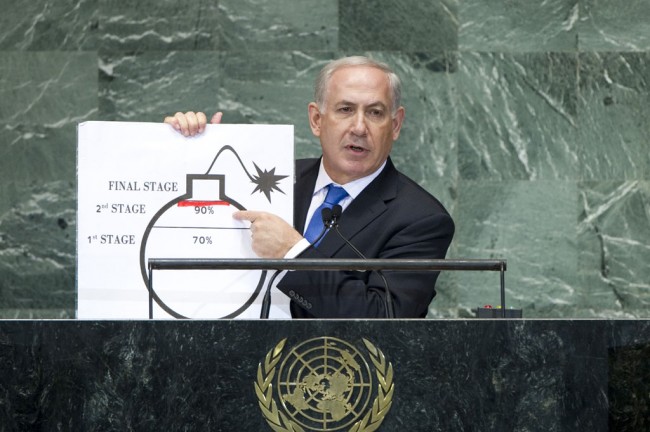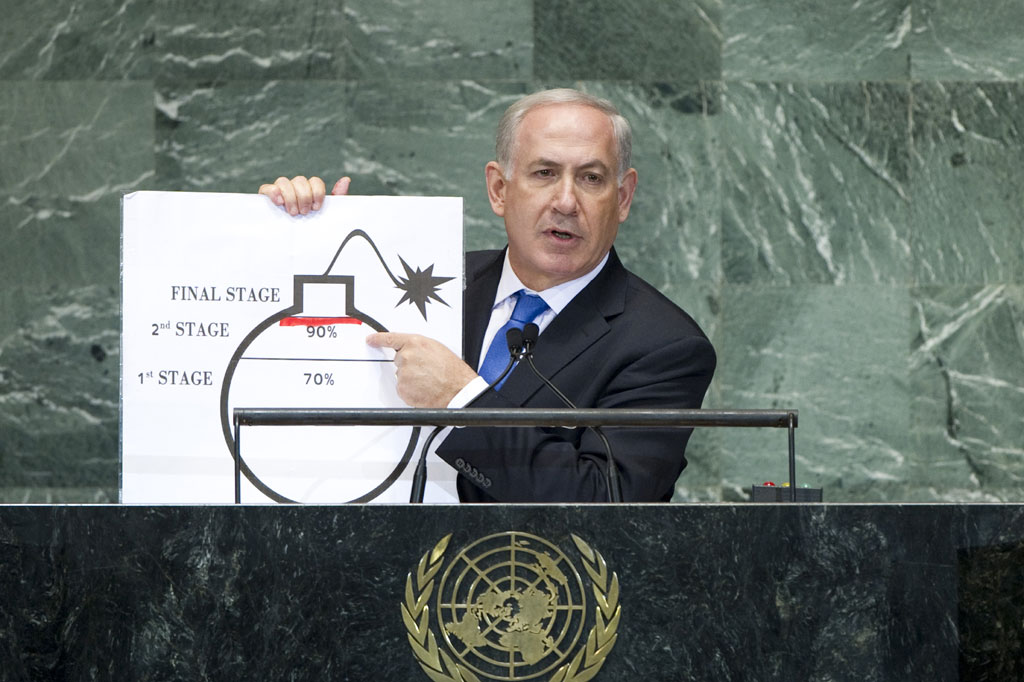Iran will have the bomb. Change of situation in the Middle East?

(BRUSSELS2) Iranian nuclear negotiators (E3+3) meet today at the European diplomatic service (EEAS). But the case now seems to be at an impasse.
Sanctions that slow down at best...
Certainly the sanctions - European and American - are having an effect on Iran; witness the fall of the Rial and the drop in oil exports. Admittedly, some targeted "strikes" (cyberattacks, "neutralization" of researchers, explosions suffered by installations, etc.) have been successfully carried out. And if the threat of a more military strike, carried out by the Israelis is regularly waved. It cannot, however, be said that all these measures have a radical effect. They do not seem, in fact, to succeed in stopping the Iranian will to equip itself with a nuclear military tool. At best, they complicate it, slow it down... This is a feeling shared by several experts on the matter. And the head of the International Atomic Energy Agency (AEIA), the Japanese Yukiya Amano, officially confirmed this on Tuesday during a stay in Paris. " We are monitoring the activities of nuclear sites in Iran and see no effect”, he told the press. " For example, their production of 5 and 20% enriched uranium continues at a rather steady rate. ».
Would a change in diet be a game-changer? ?
Westerners are betting on public anger that could lead to the overthrow of the regime. But assuming that happens, it is not certain that another regime will change the path of the former Persian empire towards nuclear power. This seems a completely credible hypothesis today: Tehran will, one day or another, have a nuclear bomb. And that day could be in the next decade. This program was also started under the Shah's regime. We will then have to get used to this new deal which is, after all, logical. The first "enemy" or rival for Iran is not Israel, often referred to, but its Arab or Muslim neighbors. If we put ourselves in the place of Iran, with on one side Pakistan equipped with the bomb, on the other Saudi Arabia, officially non-nuclearized, but able to benefit from devices with the bomb, even Israel who has this weapon (even if it has not declared it officially), one would be tempted to adopt the same position.
The Iranian bomb will aggravate the tension or lower it
Will this new deal aggravate instability in the region? Or will we somehow arrive at a balance of terror, like the one that presided over Europe? And this in fact to a regulation of tensions? What consequence will this have on the non-proliferation treaty (which Iran is a party to, unlike Pakistan)? Will Iran leave the treaty? Are other countries which do not have the bomb today, or at least officially, going to acquire this weapon or display it publicly? How important will this "new" wave of "nuclearization" be? Won't the notion of nuclear deterrence therefore undergo “demonetization” since it will henceforth be shared by more countries? This is where our analysis should now also focus.


